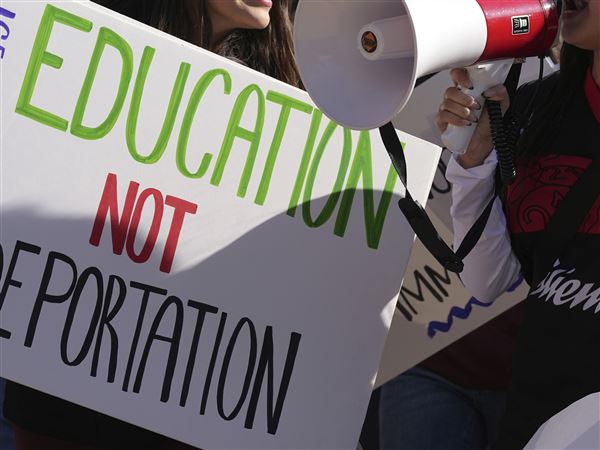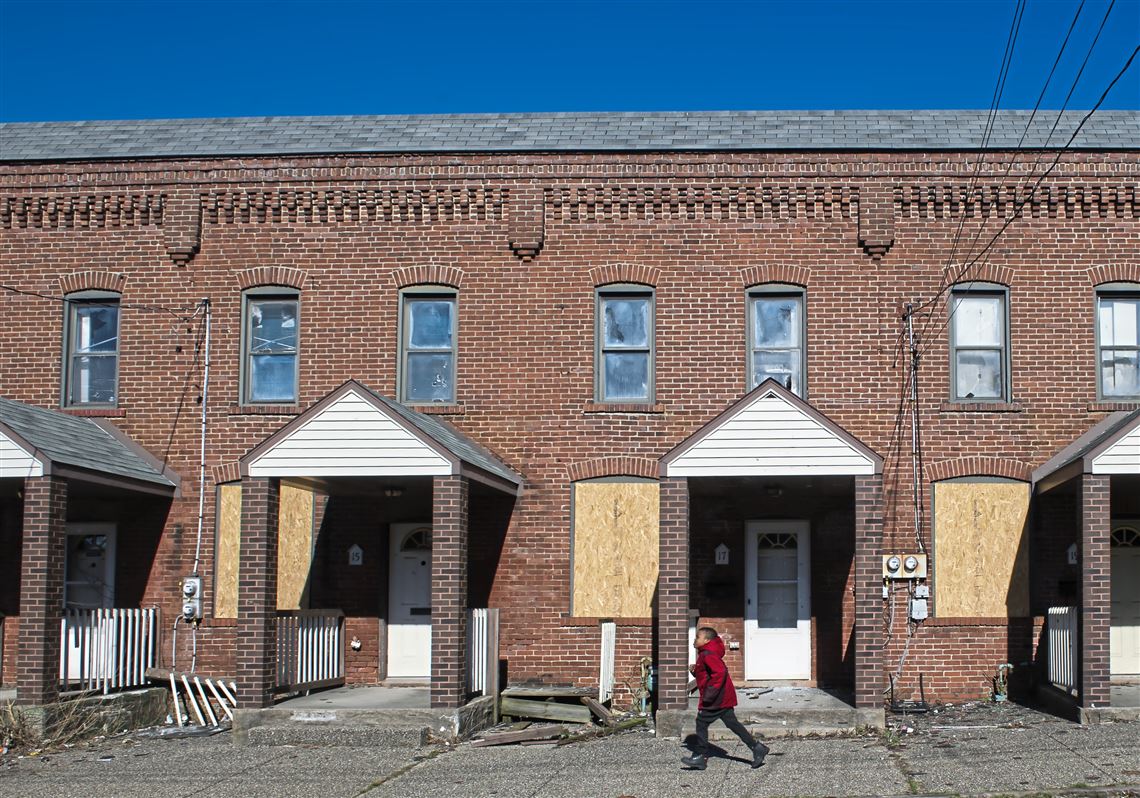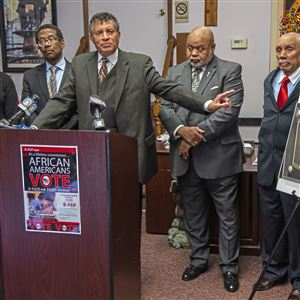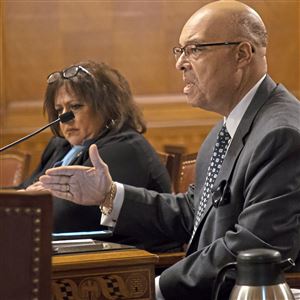Over the course of a tour to the four corners of Pennsylvania, state Sen. Art Haywood began to envision poverty as a box, with lots of people inside it.
The four walls of the box are low pay, inadequate transportation, inaccessible child care and unaffordable housing.
“These features box a person in. It’s very challenging,” the Philadelphia Democrat said last week, shortly after the release of a report informed by his tour. “These are not individual character traits. These are systems we’ve set up as government” that can be altered by government.
Mr. Haywood’s “poverty listening tour,” plus the growing body of research on the effects of poverty and a review of other states’ policies, led him to suggest 20 recommendations. Some would require action by the Republican-led General Assembly, while others could be pursued by the administration of Gov. Tom Wolf, a Democrat.
While some recommendations have costs associated with them, Mr. Haywood argues that the state should not ignore the ongoing price tag of poverty.
“When you have people in low-pay or no-pay jobs, the likelihood of juvenile delinquency is much higher,” and that imposes costs on government and society, he said in an interview.
“We could potentially reduce the cost of the health care we have to pay,” he added, noting evidence of the link between poverty and health problems.
“Finally, the human potential that we can unleash because people have resources and can contribute to society is without measure,” he said.
The latest U.S. Census Bureau estimates place 12% of Pennsylvanians below the poverty line, including 17% of the state’s children. Allegheny County’s poverty rate is 12% of residents, including 15% of kids.
The Pittsburgh Post-Gazette, in this year’s series Growing up through the Cracks, has highlighted the plight of kids in communities in which roughly half of the children are growing up in poverty. In September, the Post-Gazette outlined solutions that are having an effect on poverty elsewhere, but that are not available in southwestern Pennsylvania.
Mr. Haywood’s tour included a May 30 visit to McKeesport, and he plans to return there Friday to discuss his recommendations at a 3 p.m. appearance in that city’s council chambers. He also held hearings in Philadelphia, Lock Haven and Erie, plus meetings in Scranton and Philadelphia.
His report found that while poverty is often characterized as a city issue — and a quarter of Philadelphia’s population, like a fifth of Pittsburgh’s, lives below the line — the rates of deprivation in rural counties like Fayette, McKean and Forest are not much lower.
The overriding impression he got: People trying to get out of poverty get tripped up by the lack of public transportation to vibrant job sites, by the dearth of affordable child care, by evictions and by paychecks that don’t cover a family’s costs. Speakers at his hearings “talked about their friends and others who had not made it out of poverty, and they characterized them as defeated” despite valiant efforts, he said.
Among his policy recommendations:
- Create an Office of Economic Opportunity focused on improving the effectiveness of services for low-income Pennsylvanians. Mr. Haywood said that while there are state offices dedicated to economic development, workforce development and human services, none is effectively creating paths “to get someone earning $10,000 a year up to $20,000, $30,000 or $40,000 a year.”
- Encourage people who qualify to apply for benefits like Supplemental Nutrition Assistance Program and home energy assistance. Such programs don’t rely on state tax dollars, and can help people to stabilize their lives and move forward, he said.
- Enhance state-funded child care subsidies, and fund child care at job sites and worker training facilities. The report cited research showing that child care expenses push many families into poverty. It also cited anecdotal evidence of the lack of options that are convenient to places where people live and work and are open evenings and weekends.
- Pilot an effort — starting in the Germantown neighborhood in his district — to help single mothers to escape poverty, through collaboration of workforce development groups, educators and employers. “Something like two-thirds of folks in poverty are women with children,” he noted, and there’s “very little connection” between that population and the services available to improve job prospects.
- Launch a campaign to take some of the stigma out of poverty. “Characterizing those who don’t have [the means] as lazy or as having character flaws has, in my opinion, been an effective way of dividing people,” he said, and emphasizing the diligence of people trying to get out of poverty could counteract that impression.
Mr. Haywood acknowledged that much of his agenda would require bipartisanship in Harrisburg.
“I would say [of] the 20 recommendations we have proposed, there are some on which we can get some agreement,” he said, listing four Republican senators who have been thoughtful on economic opportunity issues.
Only one of those four senators — President Pro Tempore Joe Scarnati, R-Jefferson -—responded to requests for comment made repeatedly on Thursday and Friday.
“I remain hopeful that we can continue to engage in bi-partisan conversations and work to advance measures that help families to overcome poverty,” Mr. Scarnati wrote in response to an interview request. “My district also struggles with this issue, which is why I have invested so much effort over the past seven years to establish a rural community college. The [Northern Pennsylvania Regional College] can be attended at a very low cost by adults who often have children living at or below the poverty line.”
Mr. Haywood said he hopes to convince colleagues that helping families and saving tax dollars need not be mutually exclusive.
“If we can get people into family-sustaining jobs,” he said, “then a number of costs the taxpayers bear to get people on their way can hopefully be reduced.”
Rich Lord: rlord@post-gazette.com or 412-263-1542. Twitter @richelord
First Published: November 4, 2019, 12:00 p.m.



























